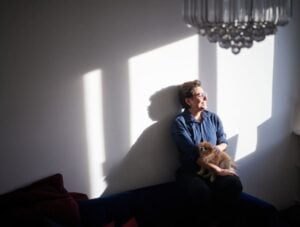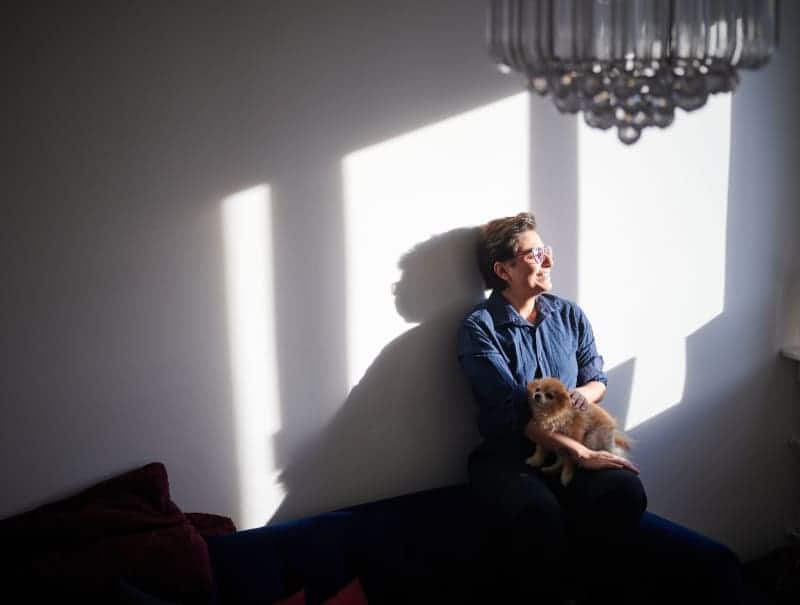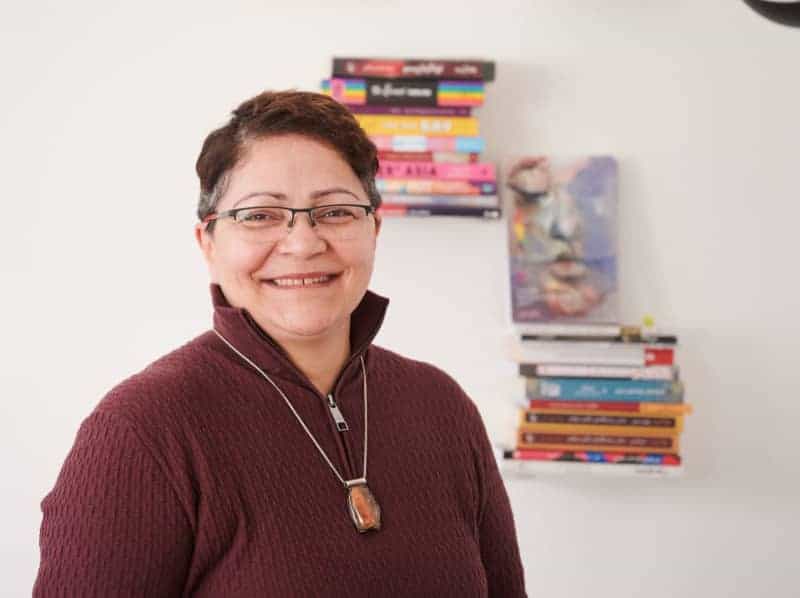
DPA

When Melika Zarr thinks of her native Iran, she is overcome by difficult emotions, not just because of the way nationwide protests are being brutally suppressed.
“My family controlled me fiercely,” says Zarr, 30, in her apartment in Berlin. “My parents wanted me to dress in a more stereotypically feminine way. I wasn’t allowed to wear sneakers and had to go to school wearing high heels.”
At the time, she was 13 years old and going to school in Iran. But her problems really began when she wrote a love letter to a female classmate – much to the disapproval of her teachers and parents.
Today, Zarr (not her real name) is settled in the German capital, having left her homeland in 2018. She fled because her sexual orientation was unacceptable there and remains a taboo in many families and the traditional religious social class.
According to Islamic legal opinion, same-sex relations are punishable by death in Iran. In desperation, some people choose gender reassignment surgery, which the state has advocated since it was legalized by former revolutionary leader Ayatollah Ruhollah Khomeini.
The country’s conservative and strictly religious circles still consider being gay, lesbian or transgender a “curable” mental illness. “I had a couple of doctor’s appointments for hormone reassignment when I was 16 because I thought I was transgender,” says Zarr. “But then I met Shadi.”
Shadi Amin also came from Iran and founded 6Rang, a Berlin association run by Iranian women that campaigns for the rights of queer people, meaning those who are not heterosexual or whose gender identity differs from the sex they were assigned at birth.
“Because of the laws in Iran, many people don’t even realise that you can be lesbian or gay,” says Amin. That was also the case for Melika. Homosexuality is taboo but Tehran legalized gender reassignment as a way to treat transsexuality.
While this may seem like a degree of openness, many trans people face social exclusion and stigmatization, says Amin. Moreover, queer people in particular are suffering amid the current unrest in Iran.
As the protests that began in September rage on, queer and homosexual people are also campaigning for more rights.
The women-led uprising was triggered by the death of 22-year-old Kurdish woman Jina Mahsa Amini, who died in police custody after being arrested for violating Islamic dress codes. At least four demonstrators have been executed for their involvement in the protests and more than 20 others have been sentenced to death.
“The Iranian government has been condemning and executing people not just since September, but for decades,” Amin says. In January, for example, two men were hanged for having sexual relations. There must be protests and resistance against this, says Zarr. “People must not forget this in the current protests against the regime in Iran.”
That is why Zarr also wanted to flee, having already tried living as a heterosexual woman for two years when she was 21, on a therapist’s advice. “I felt violated every time I was supposed to sleep with a man,” she says.
Two years later, she met someone special and realised she could no longer live a lie. Secretly, she allied herself with like-minded people and tried to change something about the situation, until a family member threatened to report her to the authorities.
“One night it got so bad that I had to run away with my girlfriend and sleep somewhere else. We were scared and realized we couldn’t stay in Iran,” Melika says.
At 26, she fled to Germany with her partner and was quickly granted asylum as she was able to prove she had been in contact with 6Rang for a long time and was in danger in Iran.
Some are less lucky. The Lesbian and Gay Association Berlin-Brandenburg (LSVD) reports that many of its Iranian clients are currently terrified they might have to return to Iran if their asylum applications are rejected.
The problem is known to Sven Lehmann, the German government’s commissioner for the acceptance of sexual and gender diversity. He says it has been easier for queer refugees to be admitted to the country since autumn.
That is encouraging, says Zarr, recalling her own desperation. “I hated everything in Iran at the time and had no hope that I could have a good life.”
That has driven her activism over the past few years, and she has even managed to win over her own family. “I want to help queer young people so that they don’t have to go through what I went through,” she says.



Recommended Comments
There are no comments to display.